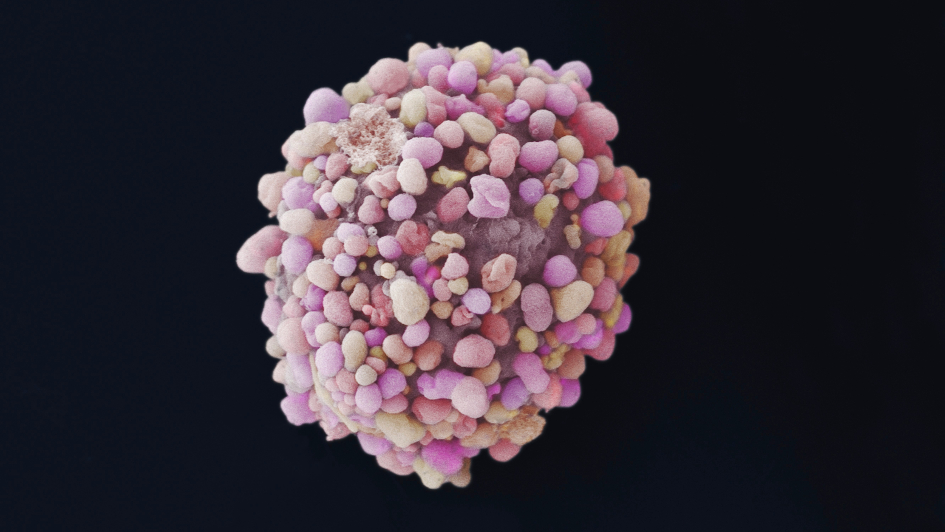 |
| Breast cancer cell. Image credit: Anne Weston, Francis Crick Institute via the Wellcome Collection. Licence: CC BY-NC. |
The drug discovered at the Institute of Cancer Research, London, is named BOS172722 and is an example of a new class of drugs characterized as evolution-busting therapies. BOS172722 works by blocking a molecule called MPS1, which plays a key role in controlling cell division. MPS1 is involved in organization of chromosomes during cell division, moving the chromosomes to the daughter cells and checking that they are evenly distributed before cell division proceeds.
By blocking MPS1, cancer cells dramatically speed up cell division from 52 minutes to 11 minutes resulting in many more mistakes being made with chromosome distribution, which results in cell death.
Results of an early clinical trial that tested a combination of pacliaxel in combination with BOS17272722 showed tumor cell division accelerated from 110 minutes with paclitaxel alone to less than 15 minutes when combined with the new drug. In addition all cells treated with the combination divided with gross chromosomal abnormalities and died compared to only 40 percent of cells treated with paclitaxel alone. The study appears in the journal Molecular Cancer Therapeutics.
Professor Spiros Linardopoulos, Professor of Cancer Biology and Therapeutics at The Institute of Cancer Research, London is leading the study.
"We have discovered a brand new type of cancer treatment that uses cancer's rapid growth against it, by forcing cells through cell division so quickly that they accumulate fatal errors," Linardopoulos said in a press release. "The drug works especially well in combination with chemotherapy in triple negative breast cancer cells - the deadliest form of breast cancer for which there are few successful treatments."
The phase I clinical trial testing the safety of the combination therapy is now under way.


No comments:
Post a Comment